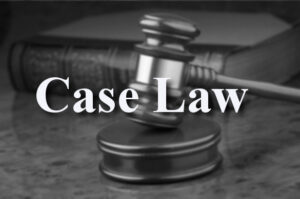
We’ve all seen someone on a police TV show yell “I know my rights”, and they’re typically intoxicated or otherwise incoherent and actually don’t know their rights at all, but what are they actually referring to?

Most people know *what* your Miranda rights are, but there is a lot of myth and confusion about when they are read and what police can and can’t ask.
MYTH: Police must read Miranda rights at the moment of arrest.
REALITY: Police are ONLY required to read a suspect their Miranda rights, IF they are in custody (not merely being detained) AND police intend to ask questions regarding testimonial information. Miranda rights are in regards to being questioned while in custody, so until police plan to start asking questions to gather testimonial evidence, they have NO obligation to advise an arrestee of their Miranda rights.

MYTH: If Miranda isn’t read, it is an illegal arrest and you have to be let go.
REALITY: If police question an arrestee about an incident AFTER an arrest without reading the Miranda warning, the statements made during that improper questioning will normally be inadmissible in court, but it has NO effect on any other evidence which is independent of those statements. Indeed, Miranda himself was retried and found guilty despite his confession being thrown out by the landmark court case.
MYTH: If you invoke your Miranda rights, police can’t ask you anything else.
REALITY: Once someone invokes their Miranda rights, police cannot ask any questions which might reasonably be expected to require a testimonial answer. However, officers can still ask other, non-investigatory questions, or questions regarding an arrestee’s identity.
MYTH: There’s NO exception! Once someone is arrested anything they say before they’re Mirandized “don’t count”.
REALITY: Since Miranda rights only cover questioning WHILE under arrest, if an arrestee ISN’T being questioned but still makes statements (known as “spontaneous utterances”), those statements are still perfectly admissible in court. (If officers are leading an arrestee to a patrol car, and he just exclaims to the officer “That dude is lucky I didn’t kill him.”, that utterance is admissible in court).
As well, in exigent circumstances where there is a risk to the public (such as a discarded firearm or missing kidnapping victim) the “public safety” exception to the Miranda requirement allows officers to ask questions about that risk in the aftermath of an arrest prior to reading Miranda. (In the case that established this exception, a man arrested in a store had an empty shoulder holster and was asked by the arresting officer where the gun was.)

NOTE: I used the term “Miranda rights” here since that is the common vernacular, but they are your “Constitutional rights” and what is read prior to questioning is more properly called a “Miranda warning” or “rights advisement.” (The Miranda case didn’t create any rights, it just made it a requirement for law enforcement to inform an arrestee of their Constitutional rights.)



